EMI Mentors Meeting: Orientation for Enhancing Faculty EMI Proficiency through Classroom Observation Service
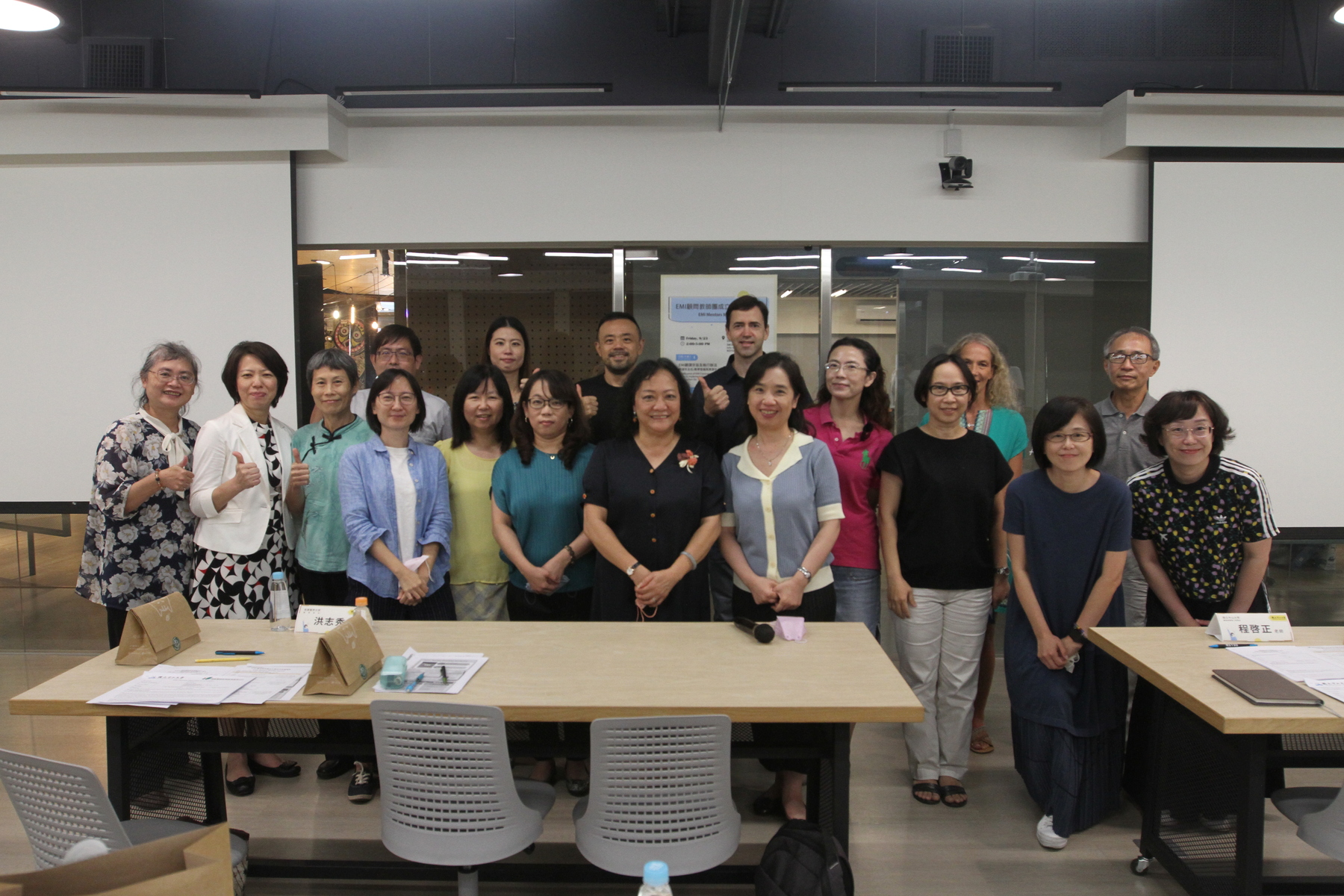
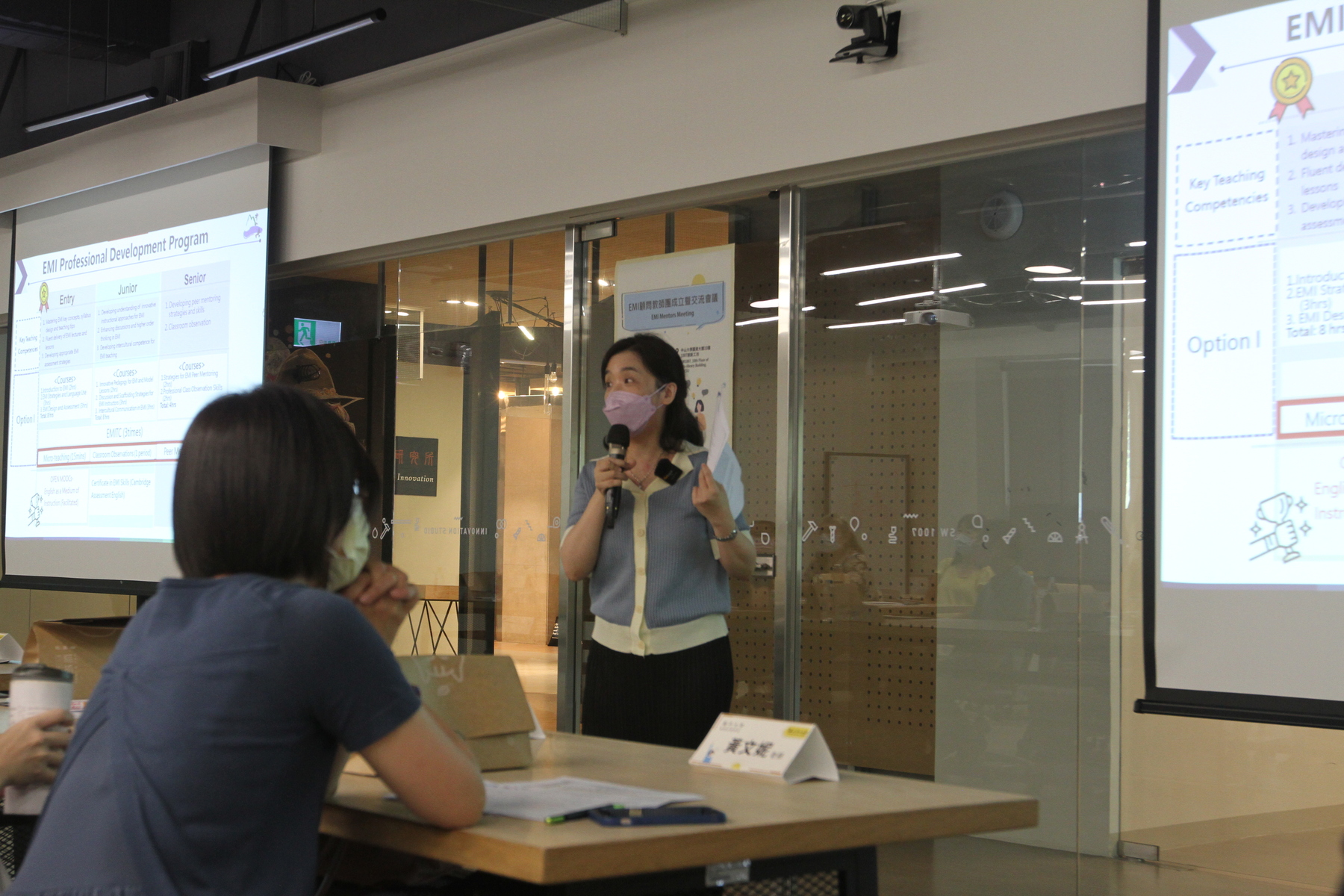
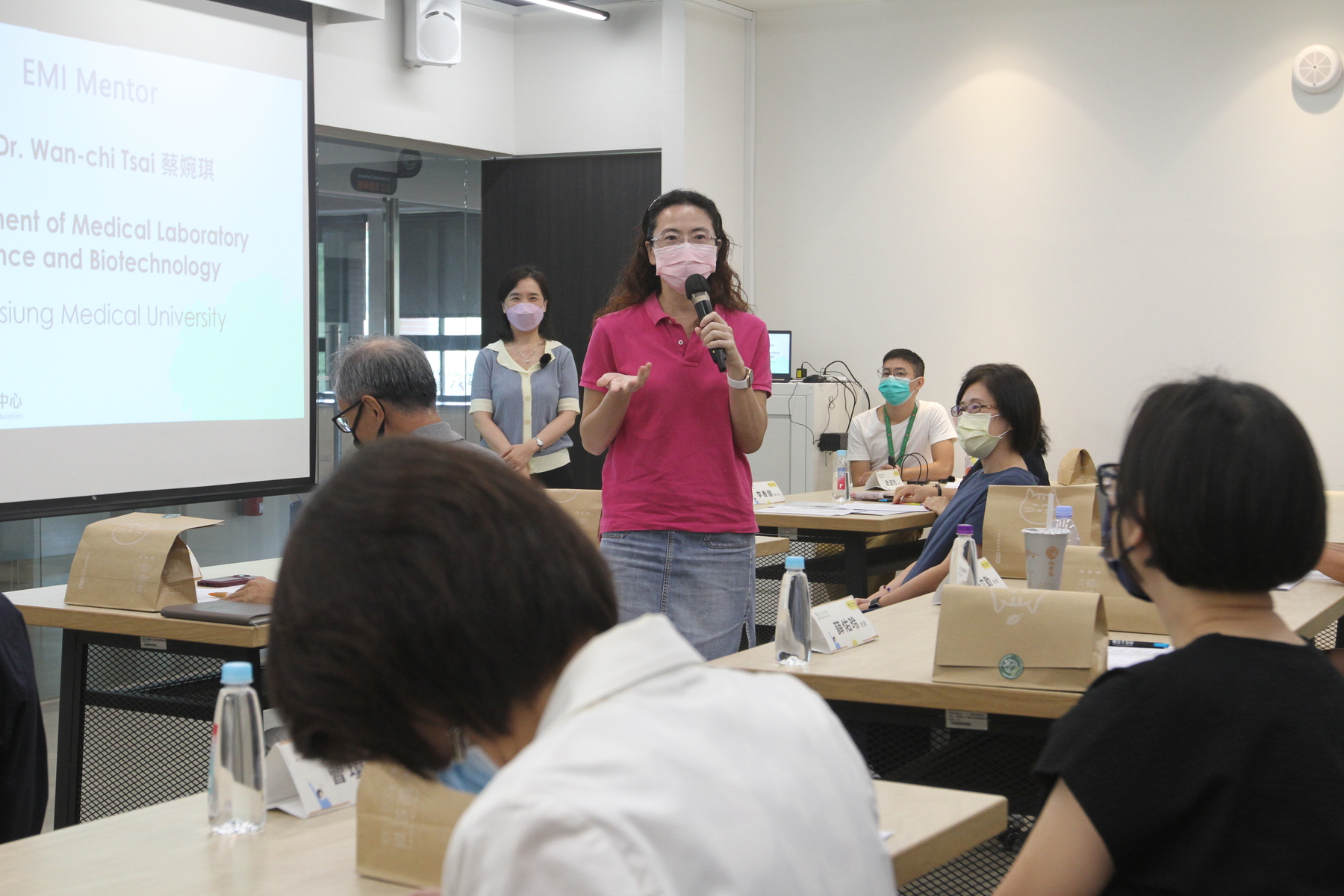
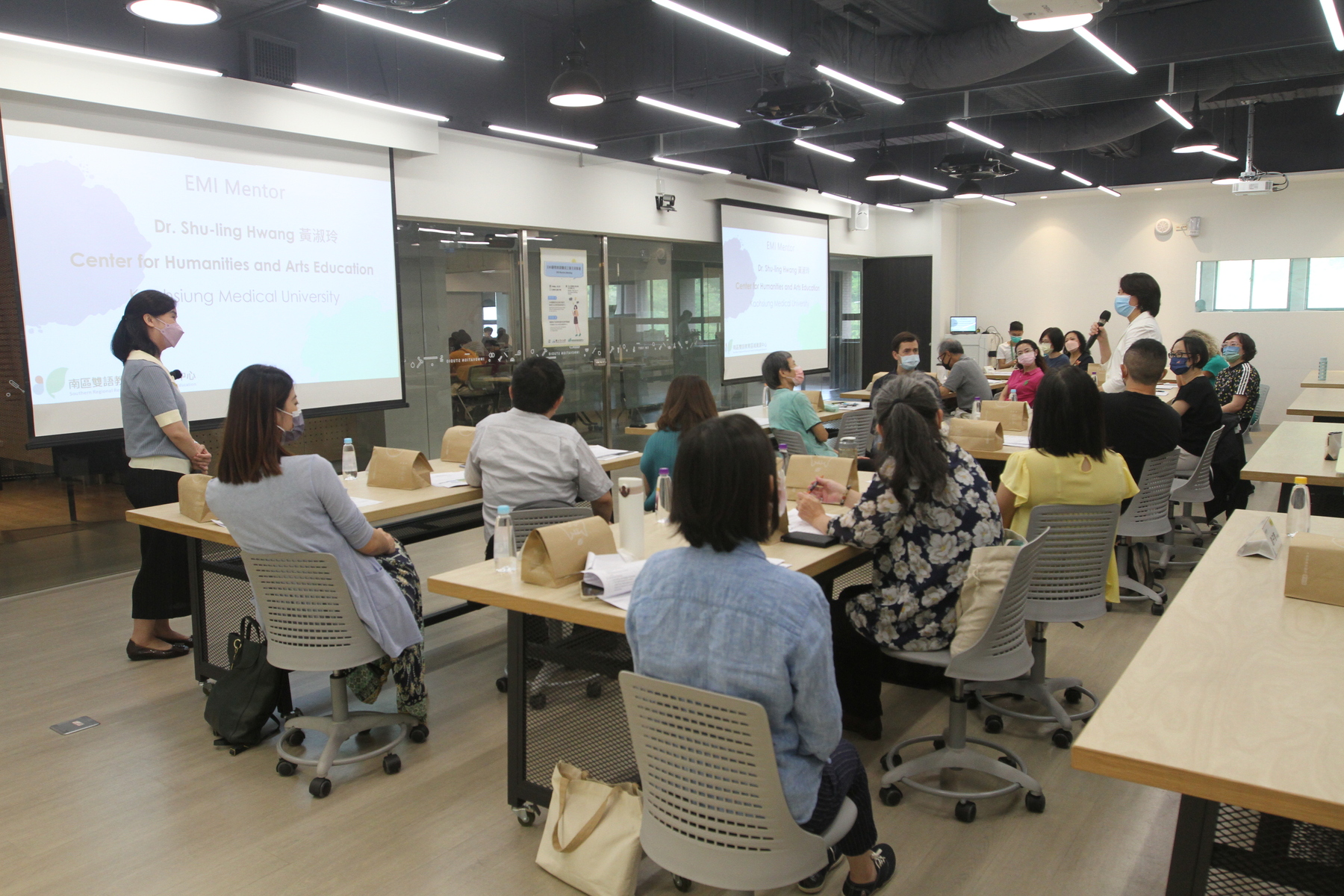
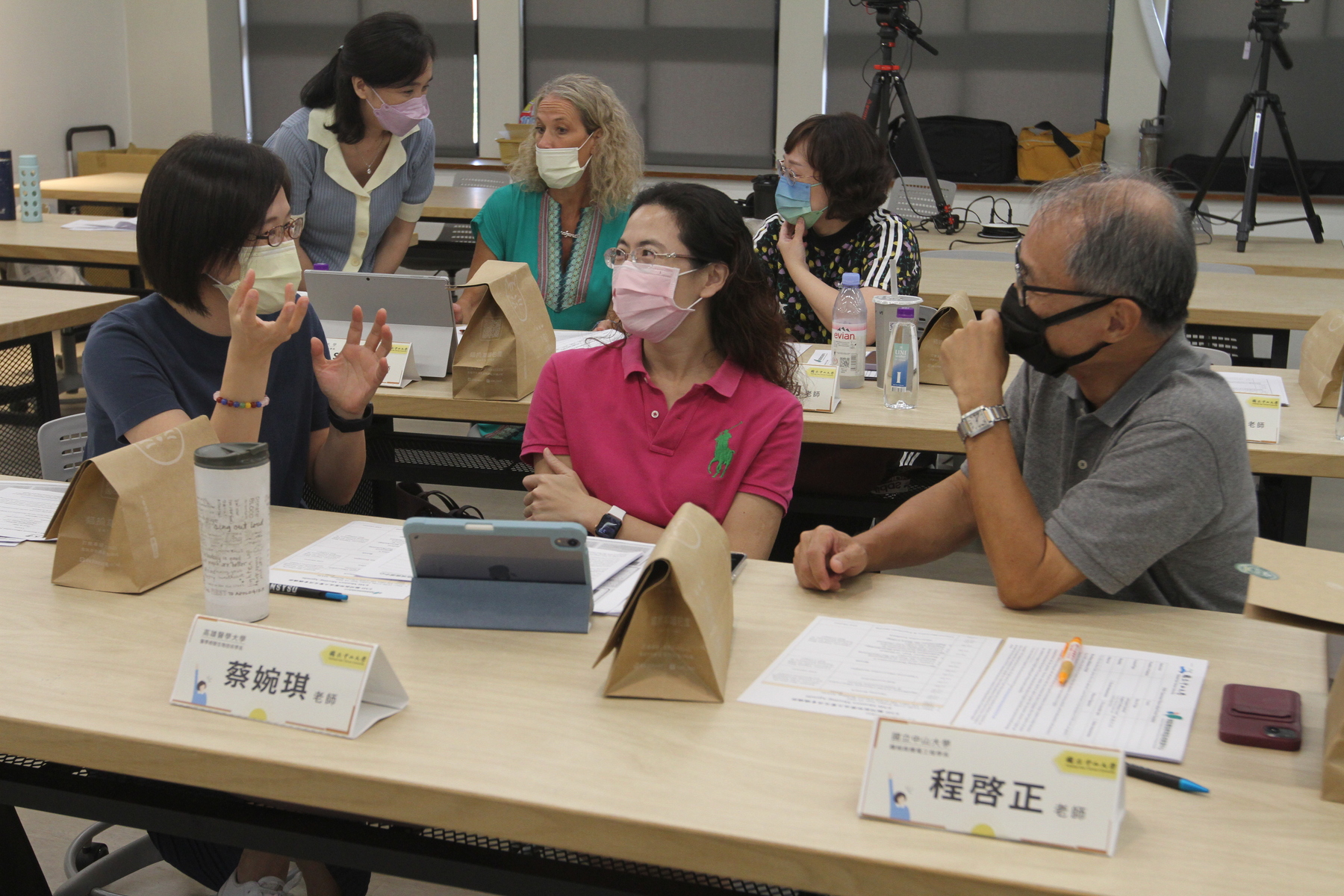
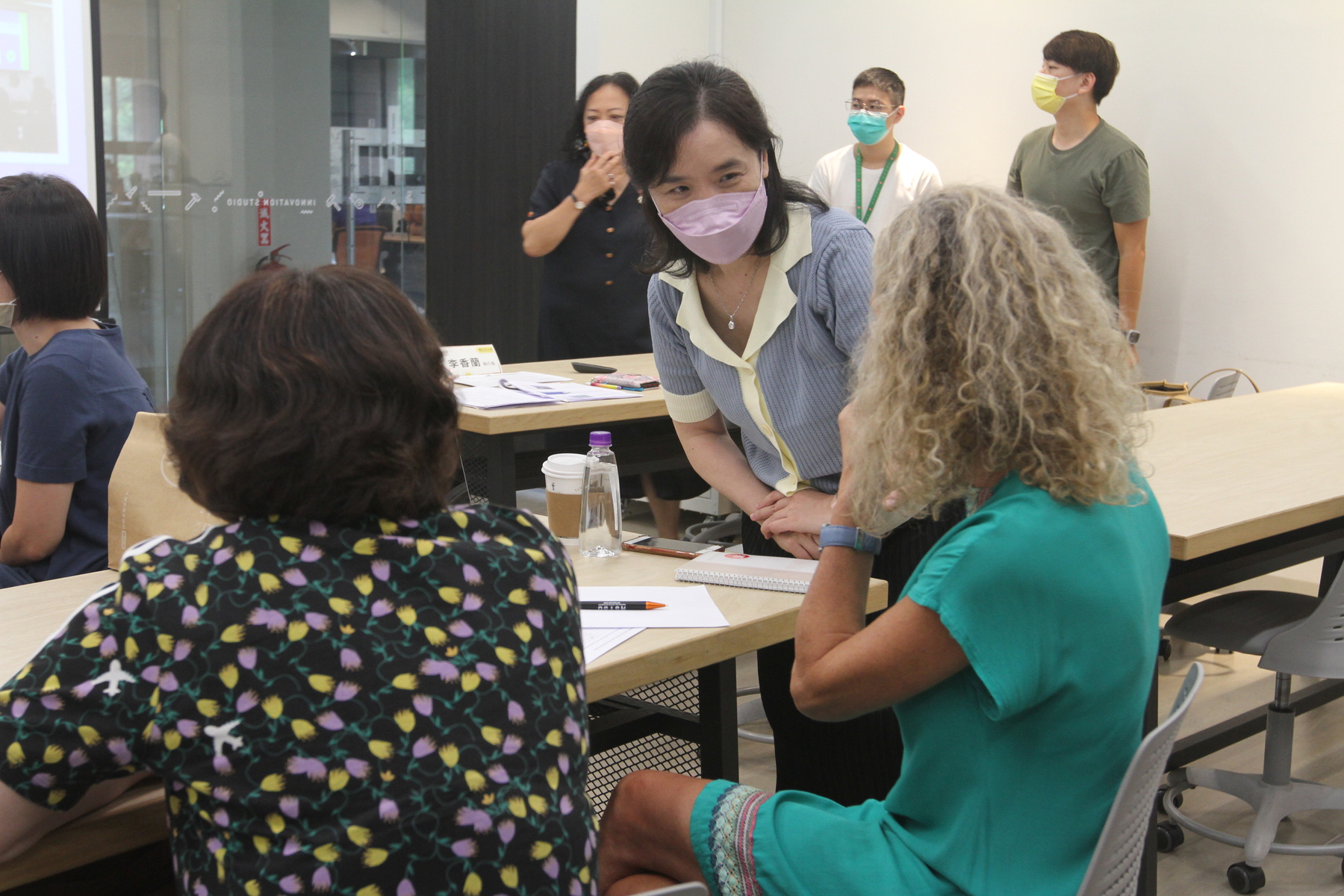
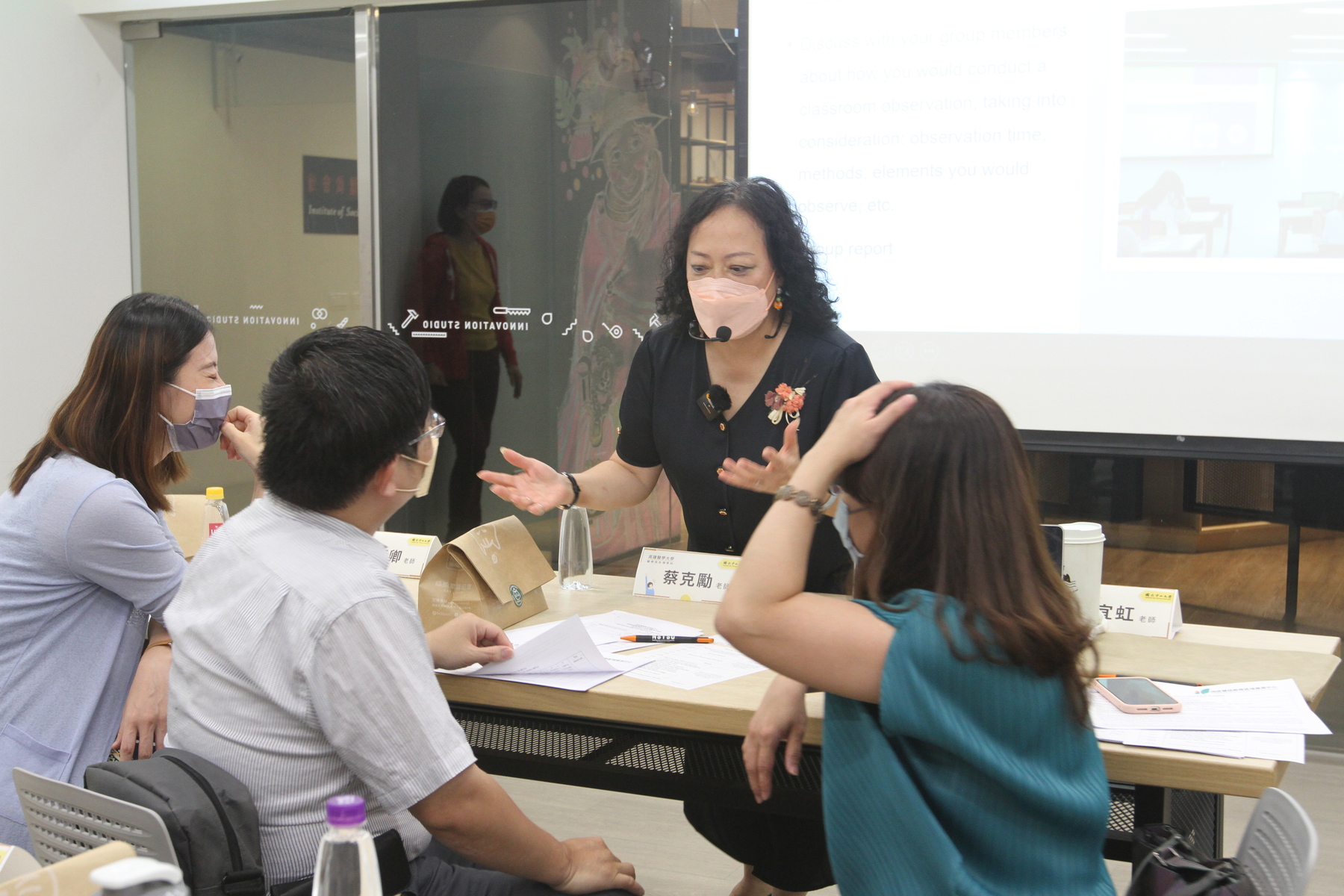
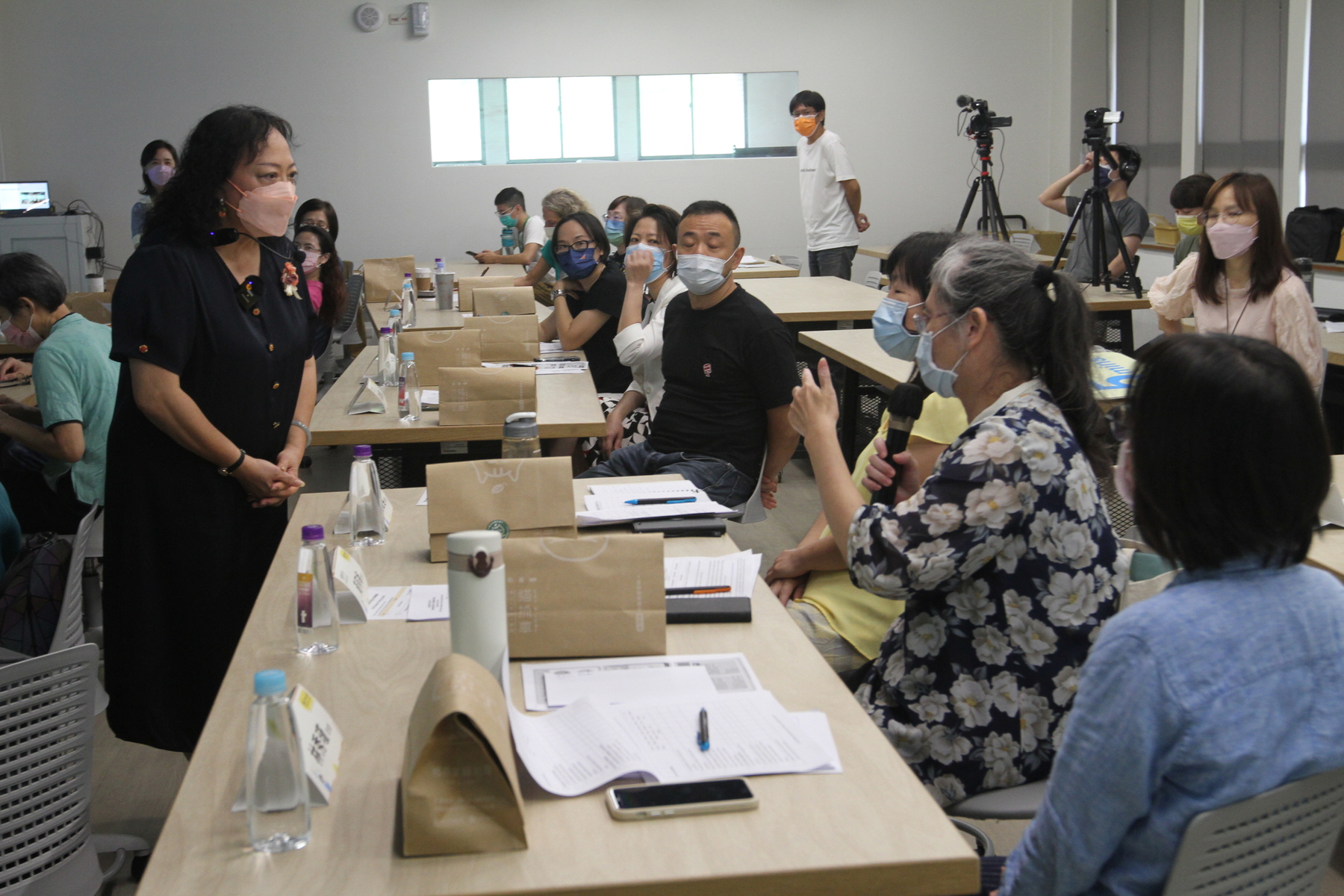
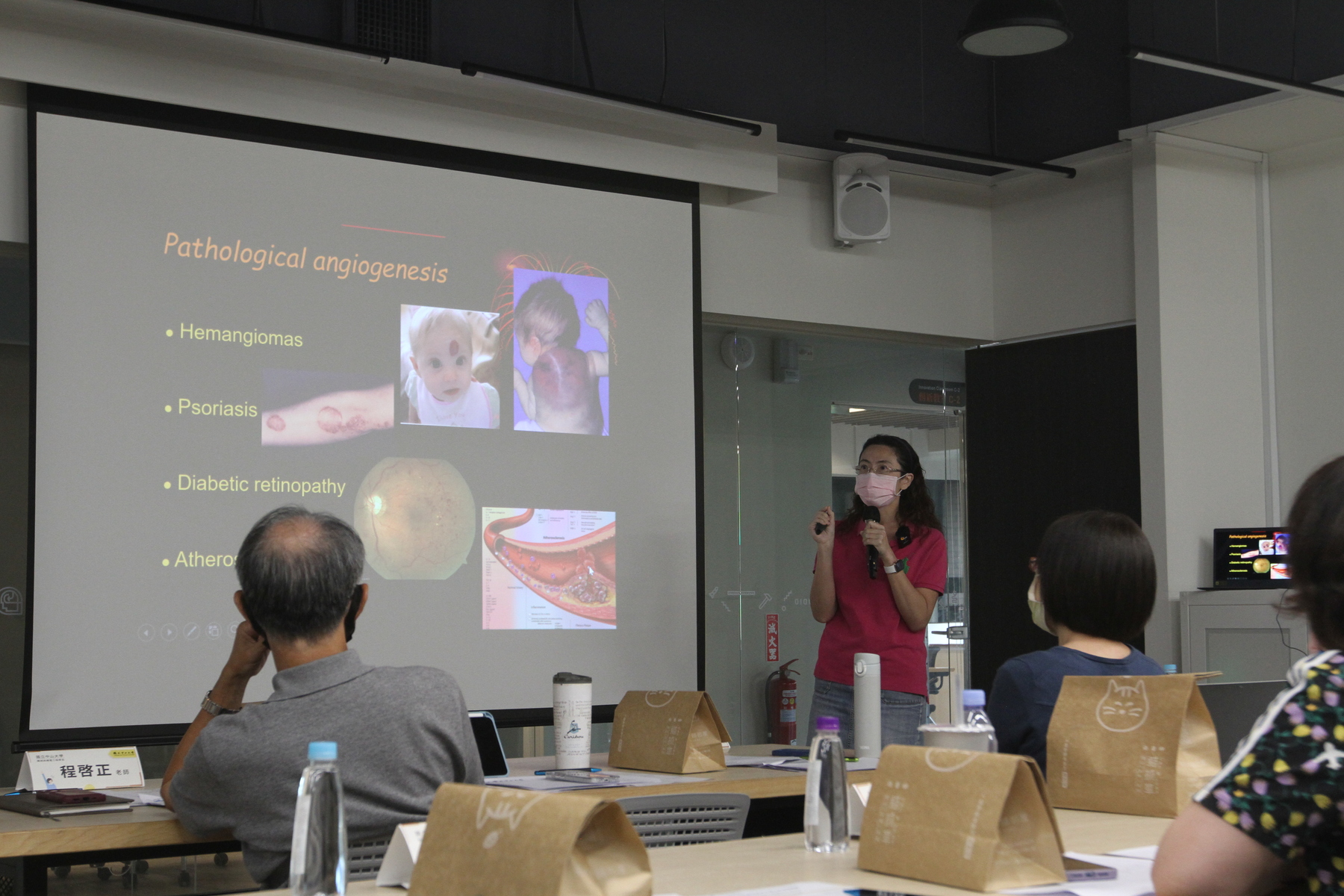
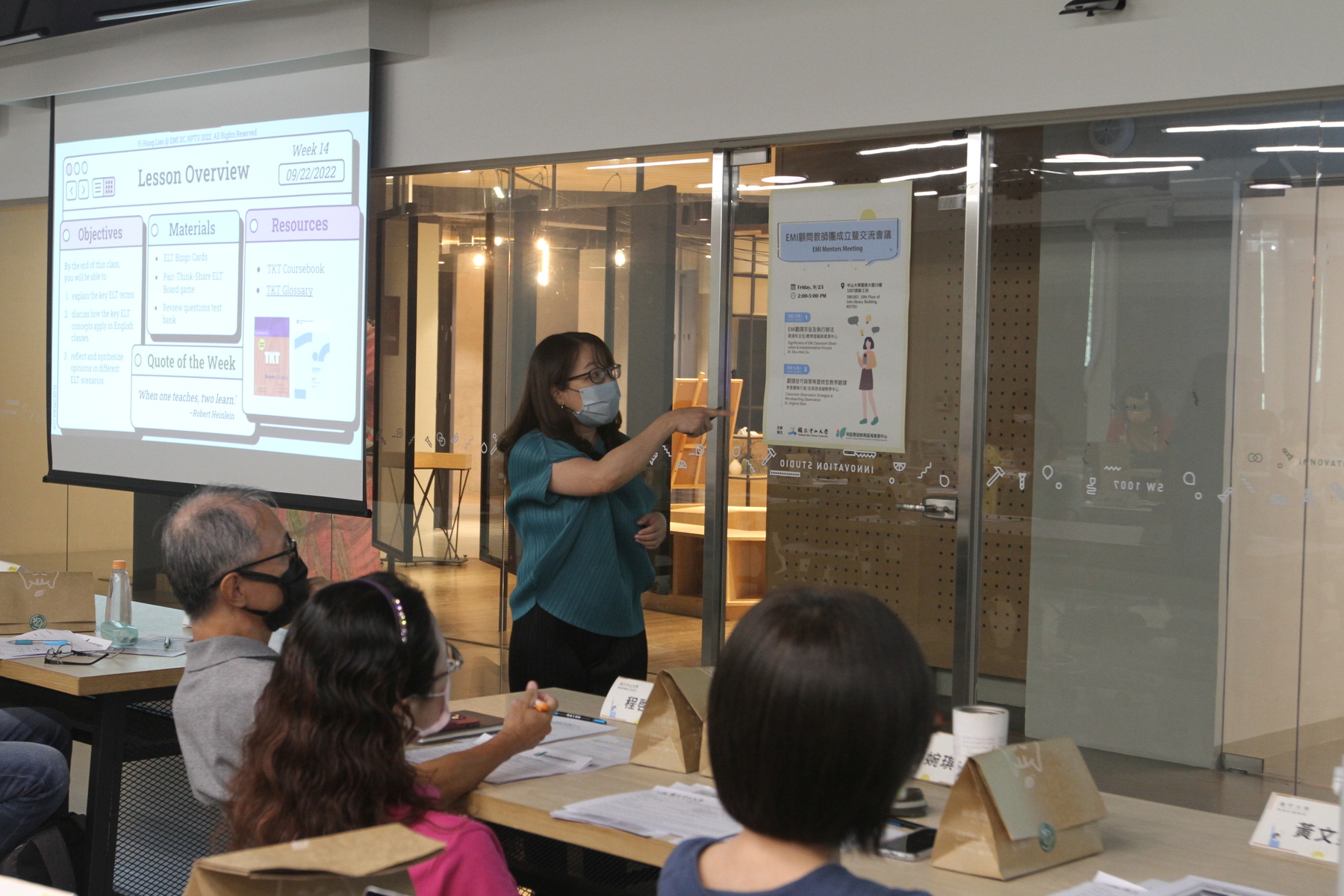
(Provided by the Teaching and Learning Development and Resources Center) On September 23, Southern Regional Resource Center for Bilingual Education of NSYSU held the EMI Mentors Meeting to celebrate the establishment of the EMI mentor team. The meeting was hosted by Shu-Chen Sherry Ou, Director of the NSYSU Teaching and Learning Development and Resources Center (TDRC), and Virginia Shen, Chief Executive of the Center for EMI Teaching Excellence. EMI mentors from 8 universities in southern Taiwan attended this singular gathering at the Si Wan College, in hopes of helping fellow teachers refine their English medium instruction (EMI) techniques by providing class observation consultation service.
In this event, Dr. Ou expounded on the significance of classroom observation, detailed the procedure for classroom observation service, and also shared tactics for peer mentoring; Dr. Shen gave a lecture on classroom observation strategies and provide a guide to the usage of the observation form template. Followed by on-site microteaching demonstration offered by the volunteer mentors Dr. Wan-Chi Tsai from Kaohsiung Medical University and Dr. Cathy Liao from National Pingtung University, Dr. Shen demonstrated how to give comment and feedback on the observed lessons verbally. Through this meeting, the EMI mentors shall be well-prepared for offering excellent classroom observation consultation service.
Dr. Ou, beginning her talk by introducing the EMI Professional Development Program, emphasized the important role classroom observation plays in the EMI training framework, and made a survey about the mentors’ experience in regard to classroom observation. Most of the mentors have been observed by others, and they noted the positive effects that classroom observations can bring. Dr. Ou proceeded to stress the considerable advantage classroom observation can bring about for the implementation of bilingual education and EMI. Mentors are responsible for guiding observed peers by giving constructive feedback and practical suggestions on teaching methods after observing mentees’ performance in class. Despite the concerns about hierarchy, cultural inappropriateness, and judgement common in contexts of classroom observation, they can be overcome by a couple of effective approaches, such as creating a positive, encouraging, and collaborative mentorship that supports mutual growth.
Dr. Ou also explained the complete procedures for observation (including pre-discussion, practicing of observation, and post-discussion and giving feedback), their respective purposes, and details that deserve proper regard. By establishing an intercollegiate consultation system that fosters connection building, exchange of ideas, and mutual learning, NSYSU expects to support and encourage mutual support between faculty members of regional universities in regard to the development of EMI competency, said Dr. Ou.
“Classroom Observation Strategies” being the title of her lecture, Dr. Shen elucidated the benefits that classroom observation can bring to both observing teachers and observed instructors, indicated the attitude and values mentors supposed to hold, and provided practical guide to giving observation feedback. Through observing peer teachers’ classes, observers will be able to gain different ideas and learn new strategies for teaching. By observing the class at a different angle, they will also have a deeper understanding of students. As for the observed instructor, they will have a chance to receive valuable suggestions from peer mentors experienced in EMI, and examine their own classes objectively. Through peer mentors’ insights, observed instructors can better recognize and reinforce merits they already demonstrate on one hand, and also make improvement on shortcomings on the other, such as becoming more student-centered and adjusting their language delivery in EMI.
Dr. Shen went on to encourage establishing effective communication between mentors and observed teachers. Before classroom observation, mentors are supposed to give a clear account of the standards of evaluation so that observed teachers will be well informed of the elements and traits an ideal EMI lesson should include. After observation, mentors should also provide feedback as practical and concrete as possible for the sake of observed teachers’ improvement. In order to take notice of the multifaceted dimensions of an EMI class, the usage of a classroom observation form is indispensable. Dr. Shen introduced the observation form template designed by the Southern Regional Resource Center for Bilingual Education and elaborated on every item which is respectively categorized into “planning and content knowledge”, “instructional technique”, “student engagement”, “classroom atmosphere”, and “teacher-student relationship.” Dr. Shen also shared examples of evaluation feedback she wrote for EMI mentors’ reference, and reminded them of the courtesy and skills needed for writing feedback.
Succeeding Dr. Shen’s talk, 2 volunteer EMI mentors, Dr. Wan-Chi Tsai and Dr. Cathy Liao, offered microteaching demonstration for fellow mentors to do on-site practice of lesson observation. Dr. Tsai’s topic is Angiogenesis, while Dr. Liao displayed a lesson review on Principles of Instruction. After the 2 splendid sessions of microteaching, Dr. Shen demonstrated real practice of observation and gave verbal feedback, commenting on how the 2 teachers’ achieved effectiveness in their teaching. Sharing their teaching experiences by offering EMI observation consultancy, the EMI mentors shall help more teachers refine their EMI skills and confidently conduct lessons via English, and cultivate more students into global citizens of the new generation.
Dr. Ou and Dr. Shen once again restated the importance of the role EMI mentors play in supporting other faculty members in effectively giving instruction with English in the context of the implementation of the Program on Bilingual Education for Students in College (BEST). EMI classroom observation service is now available. Faculty of the regional universities are welcomed to apply. For more information, please browse the website of the Southern Regional Resource Center for Bilingual Education: https://emi-tdc.nsysu.edu.tw/index.aspx.
(Edited by the Public Affairs Division)
